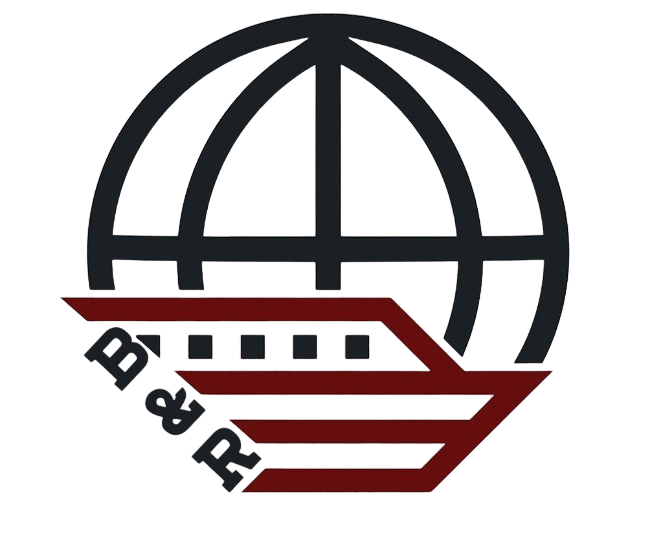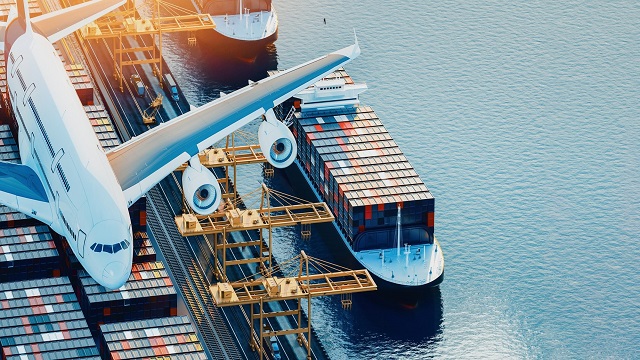Road Freight
Road freight is the movement of commodities by motor vehicles via a network of roads from one site to another (a place of loading and a place of unloading). Road freight is the practice of moving merchandise by road while operating a vehicle. Road in this context refers to the lane or route that connects the starting point with the final destination. Road maintenance is less expensive when compared to other modes of transportation like the sea and the air. When alternative forms of transportation are unavailable in rural locations, road freight may be the sole option for delivery.

Advantages of Road Freight
Trucks have access to a level of infrastructure that no other mode of transportation can match, which is one of road freight’s key advantages. The road network is by far the biggest transportation infrastructure when it comes to inland transportation. Road freight also doesn’t rely on logistical nodes like ports, airports, or train stations, and almost no location for products is inaccessible by road.
The vast majority of the time, they need additional road transportation to get the items from the plant or warehouse to the (air) port, train station, or vice versa. Road freight’s variety and adaptability provide practically limitless options for moving products from one location to another.
The most adaptable method for moving products is via the road. Road freight can allow last-minute route or timetable modifications, unlike rail, air, or marine freight.
Road freight gives you almost limitless access because items can be delivered everywhere a vehicle can travel. Road freight can be delivered directly to the customer because it is not restricted by harbors, rail lines, or airline timetables.
Fleet managers can have complete control over all road freight movements with the correct systems in place. A fleet manager may fully manage road freight, from driver analytics to real-time route and delivery updates.
Road transportation offers door-to-door service for all freight deliveries, which is an unrivaled advantage. The only comprehensive system that provides transportation to the destination is the road system. When compared to a rail or flight where you have to deliver anything to the terminal and then board the vehicle after passing through several security checks.
Transporting commodities over small distances is made faster and less expensive by road transportation. Other modes of transportation, such as water, air, or rail, may cause delays in the transit of products since several sites need to be loaded and reloaded. When traveling by road, it can be placed immediately into a single car and driven there without stopping.
One of the main benefits of road transportation is that it enables large business establishments and corporations to operate their motor vehicles and launch their own services to market their corporate goods without incurring significant maintenance costs or dealing with onerous formalities. As a result, businesses can operate their portation system in their own time and space without experiencing any delays. This is a significant flexibility and benefit of road transportation.
the Drawbacks of Road Freight
Road freight can (depending on the route) take longer than rail or air freight alternatives if your goods are traveling vast distances or even across borders. Traffic jams, bad roads, and the need for driver breaks can all result in delays that add up to additional hours. Road freight can be more expensive overall than alternative methods of shipping – in addition to expensive delays – but it all depends on the route, the items being shipped, and the schedule.
Compared to its counterpart transportation industries—air, rail, and water—which are significantly more organized and structured—road transport is significantly less organized or structured. Road transportation is frequently erratic and unreliable. Additionally, the prices for transportation are arbitrary, unreliable, and unfair. The numerous participants and options that are present in the road transportation industry are to blame for this disorganization and randomness.
Road transportation for large freight seems impractical, especially for long distances, as it is challenging to move and entails expensive loading and unloading fees. Given that driving is more unpredictable than other forms of transportation, there is always a chance of overloading or the destruction of large cargo during transit. These occurrences may be expensive, making them liabilities rather than assets.
Types of Road Freight Services
Transport of Special Cargo
Whether it’s machinery, industrial equipment, or building materials, transporting heavy or big cargo requires the availability of appropriate transportation. In this situation, specific equipment like huge tonnage machinery or cranes is typically required for handling, loading, and unloading.
Transport of Dangerous Goods
When it comes to the necessary safety precautions, the carriage of dangerous material, or ADR transport, represents a new level. A variety of specialized documentation and forms must be filled out for each operation, and specific licenses and authorizations are needed for each transport. This is due to the extremely high risk that chemicals and hazardous materials bring to both the environment and public safety. The significance of this mode of transportation should not be understated for these reasons.
Transport of Bulk Cargo
is the movement of a sizable quantity of goods without prior palletizing, packing, or packaging. This method of road transportation calls for a customized trailer, such as a tank, moving floor, or tub, to convey the items and reduce their loss.

Transport of refrigerated goods
For the transportation of commodities that require particular conditions for their preservation during travel, whether over short or long distances, temperature-controlled or refrigerated cargo is a necessity. The equipment used for this duty is made to regulate the temperature of goods such, among others, foods with animal or vegetable origins, medicines, and personal care items.
General Transport
Dry products or general cargo cannot be handled or treated specially during transportation. This type of cargo is typically palletized, unlike bulk or tank transport, to make loading and unloading of the vehicle easier.
Conclusion
Finally, this is the most advantageous factor that influences your decision to choose road rage as your preferred mode of freight transportatioعناصر التي .


